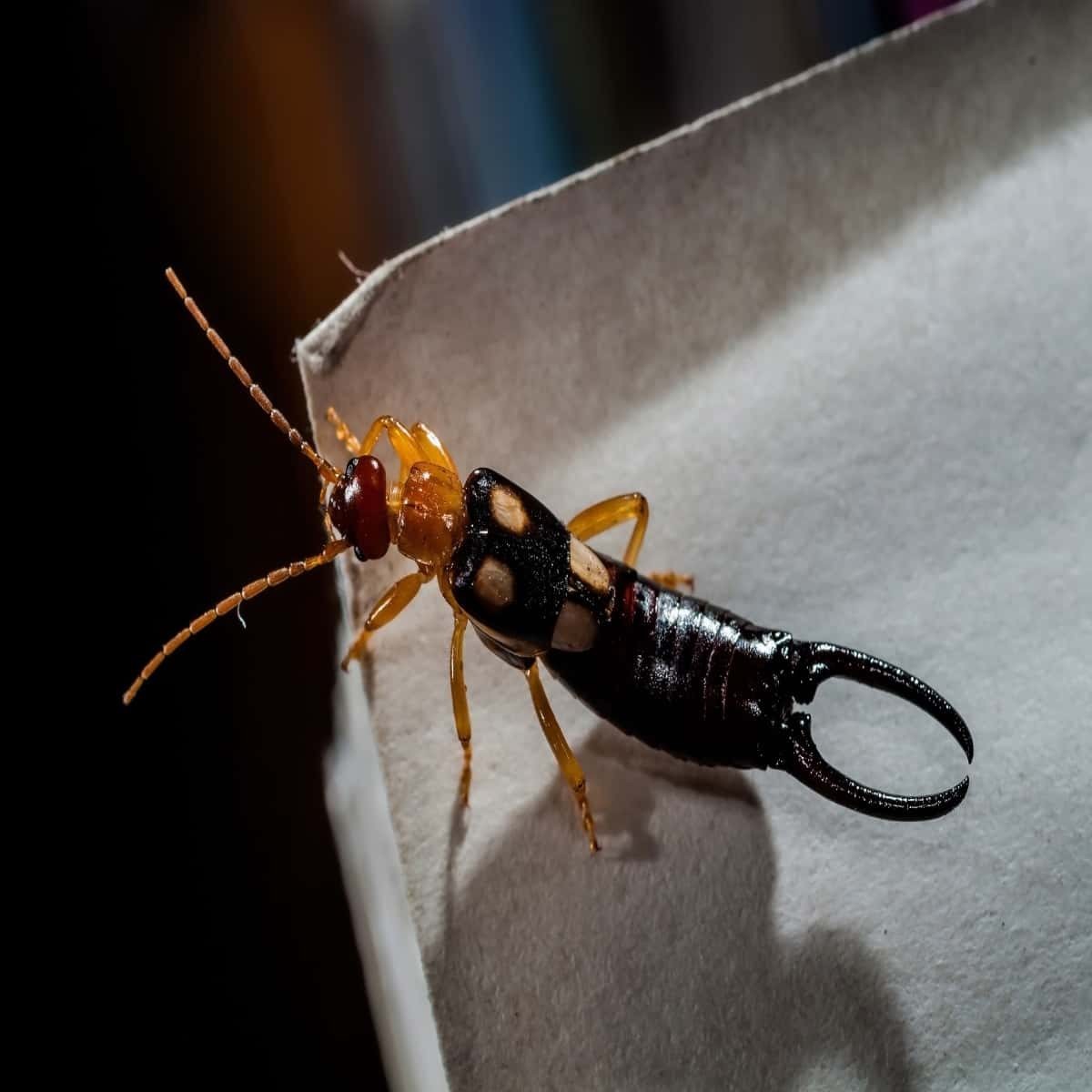Discovering any unfamiliar insect in your home can be unsettling, especially when you’re a pet owner. Earwigs, with their distinctive pincers and somewhat menacing appearance, often cause concern. If you’ve spotted these critters around your house or garden, you might be wondering: Are Earwigs Dangerous To Pets? It’s a valid question, and as pet experts at pets.edu.vn, we’re here to provide you with the information you need to keep your beloved companions safe and sound.
Understanding Earwigs and Their Nature
Before diving into the dangers earwigs might pose to pets, let’s understand a bit more about these insects. Earwigs, sometimes referred to as pincher bugs, are easily recognizable by the pair of forceps-like pincers at the end of their abdomen. These pincers are their most prominent feature and often the source of worry. They are generally nocturnal and prefer damp environments, often found in gardens, under stones, or in decaying organic matter. In homes, they might be found in basements, bathrooms, or kitchens.
Are Earwigs Poisonous or Venomous to Animals?
The good news for pet owners is that earwigs are neither poisonous nor venomous. They lack stingers and do not produce venom. Their primary defense mechanism is their pincers and, when threatened, they can release a foul-smelling yellowish-brown liquid. This secretion is not harmful, although its unpleasant odor might deter curious pets for a moment.
Do Earwigs Bite or Pinch Pets?
While earwigs possess pincers that look intimidating, their capability to harm pets is minimal. Earwigs are not known to bite in the way mosquitoes or fleas do; they don’t have mouthparts designed for piercing skin and drawing blood. However, they can pinch.
When feeling threatened or handled roughly by a curious pet, an earwig might use its pincers in defense. For a human, an earwig pinch is usually barely noticeable, perhaps a slight, fleeting pressure. For pets, especially larger animals like dogs and cats, an earwig pinch is even less likely to cause any significant discomfort. The force they can exert with their pincers is simply not strong enough to inflict pain or injury on most pets. In extremely rare cases, a very sensitive area like a pet’s nose might experience a brief, mild pinch, but this is far from dangerous.
Can Earwigs Harm Cats and Dogs if Ingested?
It’s natural to worry if your dog or cat happens to eat an earwig. Fortunately, ingestion of earwigs is not considered harmful to pets. Earwigs are not toxic, and their exoskeletons are unlikely to cause any digestive issues in most animals.
A dog or cat might encounter an earwig while exploring outdoors or even indoors. Curiosity might lead them to mouth or even swallow an earwig. While the crunchy texture might not be appealing to every pet, and the defensive secretion might be off-putting, consuming an earwig is not going to poison your pet or cause serious illness. Some pets might experience mild gastrointestinal upset if they eat a large number of insects, but this is a general reaction to insect consumption and not specific to earwigs.
Safety Measures and Pest Control Around Pets
Even though earwigs are not dangerous to pets, they can still be a nuisance in and around your home. If you’re looking to manage earwig populations, especially if they are becoming overly abundant, it’s crucial to consider pet-safe methods.
-
Natural deterrents: Keeping your yard and home dry and free of decaying organic matter can naturally reduce earwig habitats. Removing piles of leaves, trimming back vegetation from the house foundation, and ensuring proper drainage can make your property less attractive to earwigs.
-
Physical removal: If you find earwigs indoors, simply sweeping them up or using a vacuum cleaner is an effective and pet-safe way to remove them.
-
Safe pesticides: If you opt for pesticide use, it is paramount to choose products that are explicitly labeled as pet-safe and follow the instructions meticulously. Always keep pets away from treated areas until the product is completely dry and safe, as per the manufacturer’s guidelines. Consider boric acid or diatomaceous earth as less toxic options, but even these should be used with care around pets to avoid ingestion or inhalation.
Conclusion: Earwigs are Low-Threat Pests for Pets
In conclusion, when it comes to the question “are earwigs dangerous to pets?”, the answer is reassuringly no. Earwigs pose a very minimal threat to dogs, cats, and other common household pets. They are not poisonous, venomous, and their pinch is unlikely to cause any harm or significant discomfort to your furry companions.
While they might be unwelcome guests in your home, you can manage earwigs without excessive worry about your pet’s safety. Focusing on preventative measures and pet-safe removal methods will help keep your home pest-free while ensuring the well-being of your beloved animals. For further advice on pet safety and pest control, always consult with your veterinarian or a professional pest control service knowledgeable in pet-friendly solutions.

